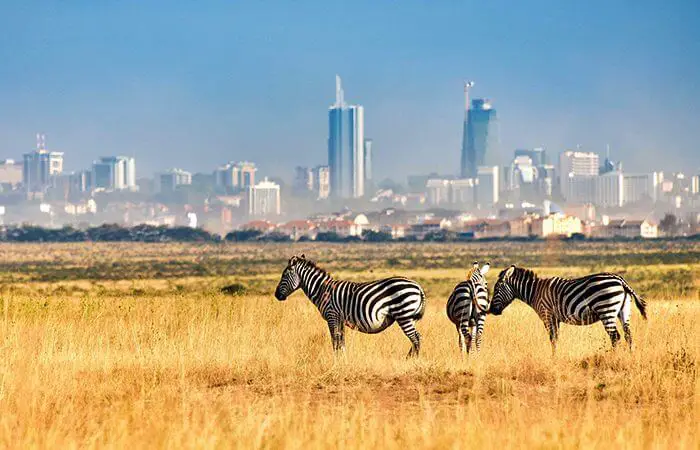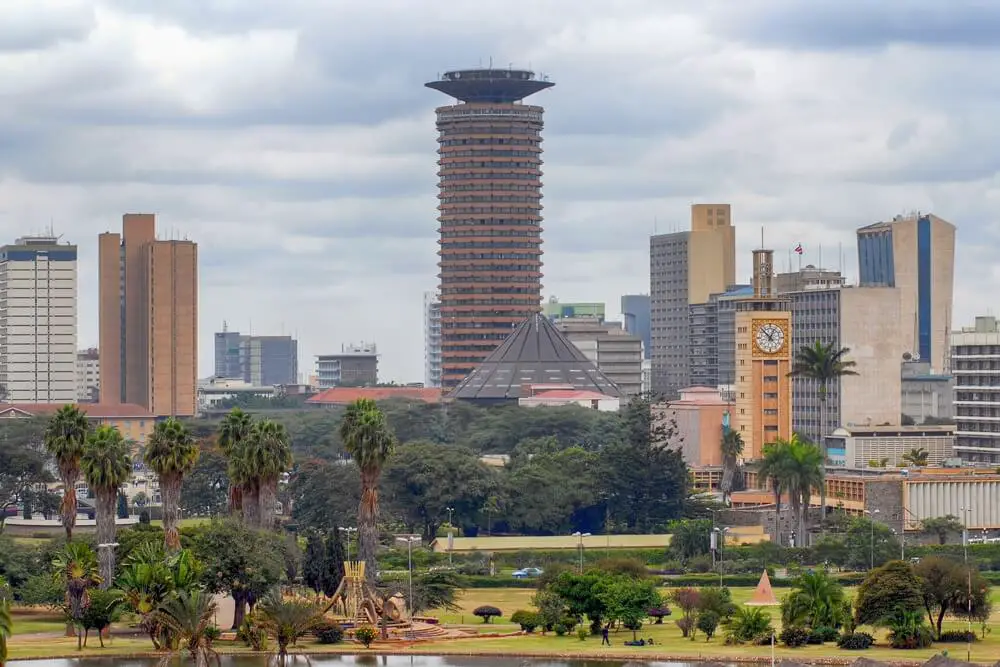Nairobi is Kenya’s Capital and administrative city. It serves as the seat of the national government as well as the major commercial hub in East and Central Africa.
Nairobi city started as a rail depot station in 1899, serving the Kenya-Uganda railway.
It served as a logistical center for railway workers and British Colonialists who were in charge of the project.
It grew rapidly to become the capital city of Kenya in 1907 when the British Colonial Administration moved its administrative center from Machakos to Nairobi.
Nairobi’s status was elevated to a municipality in 1919 and gained city status in 1954. It retained its status as Kenya’s Capital post-independence.
Since the promulgation of Kenya’s 2010 constitution, the City’s name changed to Nairobi City County as the country moved away from provincial administration and rolled out devolved administrative counties.
The decision to move the colonial administration offices was informed by the favorable climate of Nairobi and the strategic geographical location.
Origin and Meaning of “Nairobi”

The original inhabitants of today’s Nairobi area were the Maasai.
Since time immemorial, they had always called Nairobi “Enkare Nyrobi” which can be loosely translated as “the place of cool waters”.
Nairobi area was given the name “Enkare Nyrobi” because it was a cool green place with rivers and swamps being the typical physical features in the area.
The Nairobi River, Ngong River, and the lush green forests that covered Nairobi area among others justified the naming.
Since the British administrators could not pronounce the Maasai language phrase “Enkare Nyrobi” properly, they chose to call it Nairobi.
Nairobi is pronounced as (/naɪˈroʊbi/ ny-ROH-bee) according to the online English Dictionary.
The city’s residents have also coined nicknames such as Kanairo, Nairobbery, Nai and Mtaani among others.
Internationally, Nairobi is known as “The Green City in the Sun” due to its lush green vegetation and warm weather that dominates it throughout the year.
Among travel lovers, it is called “The Safari Capital of Africa” because it serves as a major destination and transit hub for tourists.
Nairobi is actually the only capital city in the world with a national park in its vicinity.
To most Kenyans, Nairobi as the capital and administrative city means an economic and governance hub.
It is viewed as one of the symbols of national unity and the cultural center of the country.
You may also want to check: What Does the Name Kenya Mean?
Nairobi Today
Nairobi has made tremendous progress to rise from the railway logistical center in the early 1900s to become the mega city it is today.
More than sixty years since Kenya gained its independence, Nairobi continues to hold its position as the largest commercial hub and most developed city in East and Central Africa.
It is also the seat of the National Government of Kenya. It is where government of Kenya business is conducted from including parliament proceedings, judiciary headquarters, and offices of the President, Deputy President, and cabinet secretaries.
It also hosts the President and Deputy President’s official residences.
Nairobi also serves as the headquarters of several international bodies including the United Nations Environmental Programme (UNDP), United Nations Human Settlements Programme (UNHSP), various embassies, commission headquarters and consulates.
It is a global investment hub that has attracted massive investment from world renowned corporations such as Alphabet Inc’s Google, Microsoft’s African Development Center, Marriott Hotels and banks among many others.
These global headquarters and investments mean that the city is a global icon for commerce, investments and a center of regional and global intergovernmental institutions.
Leadership and Politics of Nairobi

Upon independence in December 1963, the British colonial administration exited Nairobi ushering in a new era of indigenous leadership in the city.
The first mayor of Nairobi was elected in 1964 and the first-ever female mayor elected in 1975.
The city area was later subdivided into constituencies including Westlands, Starehe, Embakasi, Kasarani and Makadara among others.
These administrative areas have held elections every five years to select a member of parliament (MP) to represent the people at the national government level.
Since 2013, the city’s name changed to Nairobi City County and its leadership structure has changed, thanks to the 2010 constitution of Kenya, Chapter 11 Section 176.
Residents were allowed to elect a governor, senator, woman representative and Members of County Assembly (MCAs).
So far, Nairobi has had four governors, three senators and two women representatives, and many MCAs.
The leadership of Nairobi means a lot to Kenyans because the political stability of the capital city means economic stability and prosperity for millions of Kenyans.
Parting Thoughts
In sum, Nairobi may mean different things to different people.
To the Maasai people of Kenya, the literal and initial meaning is “place of cool waters”, but today, it doubles as the place of cool waters and the capital city of their country.
To all Kenyans it means the most important city in the country.
The importance of Nairobi to Kenyans and the world cannot be underestimated.
The city has played a critical role in shaping Kenya into the country it has become today.
It will continue to do so for many years in the future.
Also check: The Language of Nairobi: Decoding the Fascinating Language Jigsaw of Nairobi

